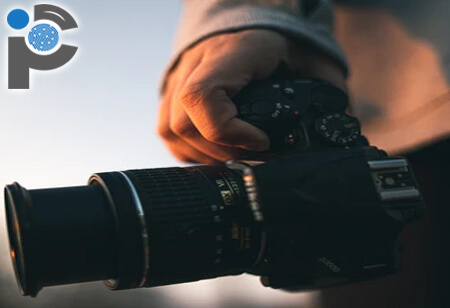What Skills Do Private Investigators Need?
June 10, 2021 - Reading time: 7 minutes
Updated on: August 8, 2025
Detective films, series, books, stories, are extremely popular and exciting. We follow the investigator’s actions and marvel at their sharp mind and ability to catch the criminal. But a real-life private investigator (PI) has to have certain skills to be able to crack a case. These skills can be learned through training courses or from past experience within law enforcement or the military.

A private investigator has to have some basic inherent characteristics that make him a suitable candidate for detective work and there are skills that he or she can learn to become proficient in the profession.
Inherent skills required to become a private investigator
- An investigative mindset: Curiosity is what compels a private investigator to analyze situations and logical thinking directs the thoughts in the right direction. Well-developed reasoning skills help the PI decipher evidence and reach the correct conclusions. He/she also has to have the ability to keep emotions out of the picture and remain completely objective.
- A keen sense of observation: An essential quality of a detective is his keen sense of observation and attention to detail. The smallest of clues can make or break a case. It pays to be thorough. This quality helps the investigator to solve the cases by getting to the bottom of a riddle.
- Intuition: A private investigator has to depend on his/her intuition to be able to guess when a person is lying. It’s this intuition that aids his/her deduction skills. He/she also has to be a keen student of human behavior and be aware of and trust his/her deducing abilities.
- Patience: A very important quality of any investigator is patience. Hours of watching and waiting are a part of conducting surveillance assignments. A dedicated investigator has to be tenacious to ferret out the truth. Patience and that persistence are the keys to successful surveillance and interviewing of difficult persons of interest.
- An unbiased mind: Any preconceived notion will negatively impact an investigator’s conclusions vis-a-vis the case he/ she is handling, particularly if it is regarding the color of the skin or race of a person. A PI has to be impartial and detached from the case which they are investigating.
- A great memory: A private investigator has to depend on this quality to be successful in his trade. He/she has to be able to think on his/her feet and make prompt decisions. He has to be well-read and aware of previous cases of crime which can be used for reference.
Private investigation skills which must be learned
1. Surveillance skills: The primary job of any private detective is surveillance. Many hours have to be spent sitting or standing without being conspicuous. Handling cameras and video equipment to gather evidence is a part of surveillance. Photographs and video footage form the primary evidence in most cases. Investigators should be proficient in their camera equipment and have good photography skills.
2. Research skills: Today there are different types of sources like phone calls, interviews, social media, online documents, and of course informants and police evidence. Being able to understand the crux of the matter from the varied information is a skill to be learned. Reading body language and understanding the implications is another skill that can be learned.
3. Critical thinking skills: A private investigator has to have well-developed reasoning skills. His/her logical mind should guide him to the motive behind a crime, the method used to commit the crime, and reach the correct conclusions. He can learn the intricacies of filing a log with relevant information. A well-written report will not only collate all relevant information, it will also help in communication with the client or the authorities.

4. Verification of evidence: A good private investigator should be able to verify the truth behind evidence. Evidence is collected from varied sources, so computer proficiency is as important as handling GPS trackers and video surveillance. Photography skills come to good use since the most credible type of evidence is usually photographs or video, especially in court.
5. Communication skills: Interrogation is an important part of a PIs daily routine. He/she must know the art of persuading, convincing and listening to people. The actual meaning behind the words uttered can be deciphered by an intuitive, well-trained detective. Studying body language, facial expressions, and asking appropriate questions are skills that a diligent detective or PI must develop.
6. Sound knowledge of the law: Many surveillance actions are restricted to the police and law enforcement agencies. A PI must be educated about relevant codes and statutes in the area he operates. This legal knowledge will prevent him/her from indulging in activities that may cause their license to be revoked, and to ensure that evidence is admissible in court.
7. Organizational skills: For a busy private investigator, organizational skills are essential to prevent evidence from different cases from getting mixed up or losing the focus of each case. Time management is a part of this skill too. He/she will be able to build up the clients’ faith by responding promptly to their call and being available to them at all times.
8. Confidentiality: This is a quality possessed by most dedicated private investigators. Not only is it highly appreciated, it also builds up the client’s trust.
9. Resourcefulness: New technology has made it easier and faster to access records. With the right training, a diligent detective will be able to utilize public records online, such as employment history, driving records, criminal records, and even financial records of the subject.
Private investigators are highly regarded and their services are used and much appreciated by individuals as well as law enforcement agencies. Stories about them line the shelves and the video platforms. But although on-screen or in books the private detective’s life seems glamorous and exciting in actuality it is a difficult profession. It requires dedication, honesty, commitment, and all the skills described above. It can be tedious, boring, and often frustrating. But those bitten by the curiosity bug make very good private investigators. After all, they do not rest easy till they have found out the truth.
Private investigator resources
If you enjoyed reading this post, then check out these related articles:
You are reading the PrivateInvestigators-UK blog — home to the UK's leading detective agency. Learn more about us by visiting our homepage PrivateInvestigators-UK.com.